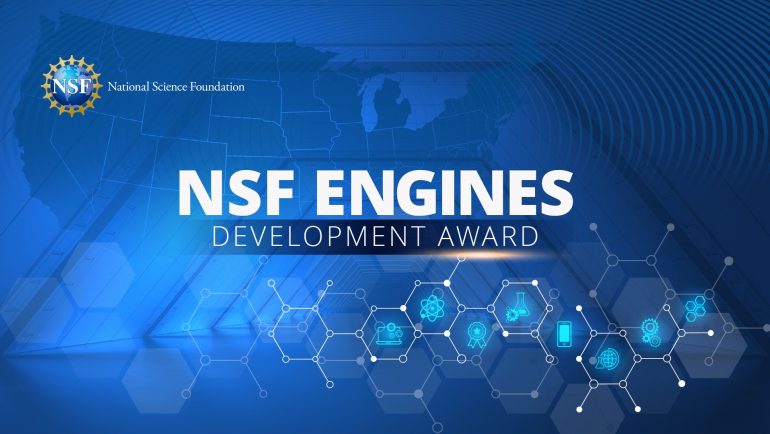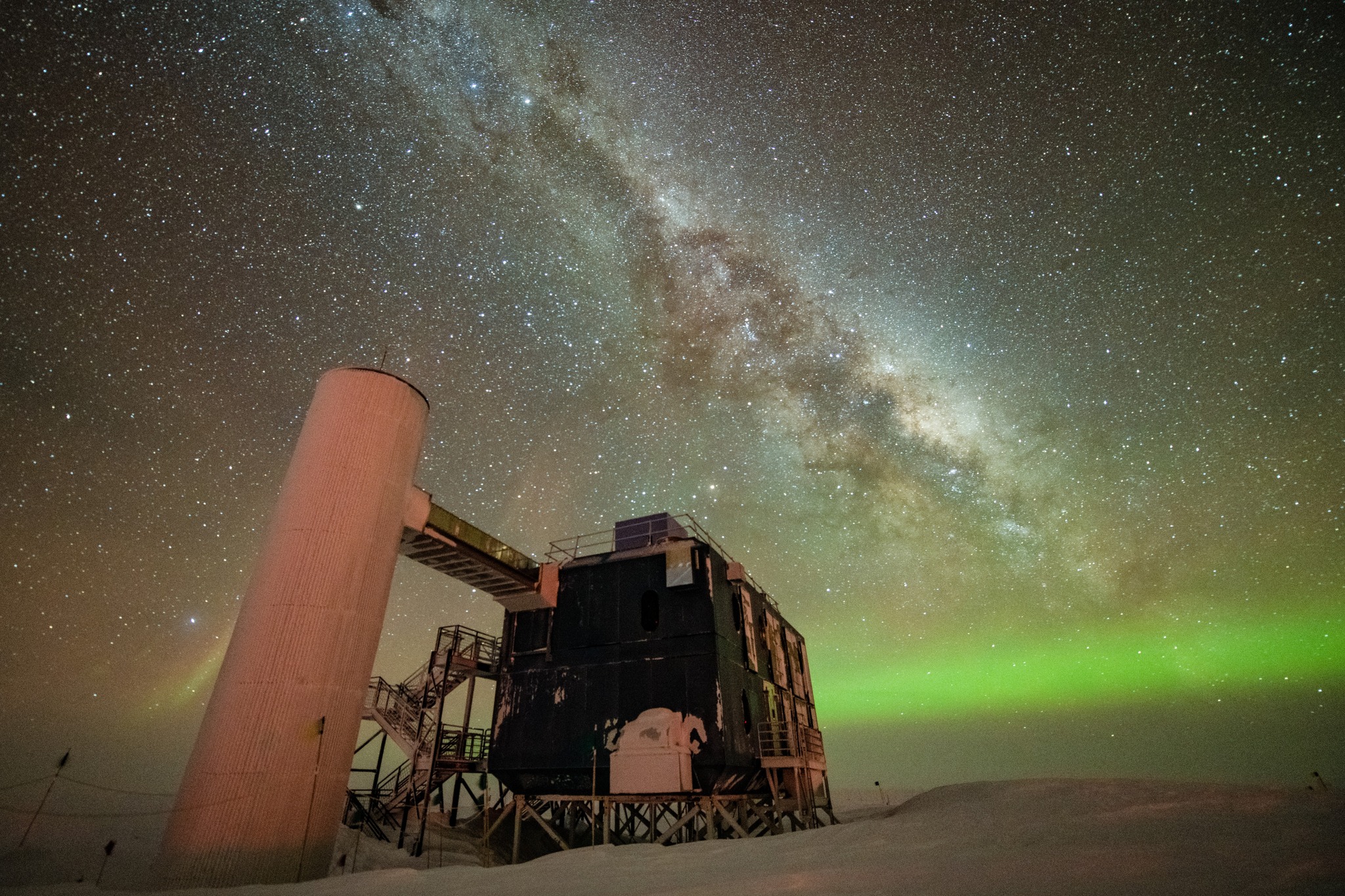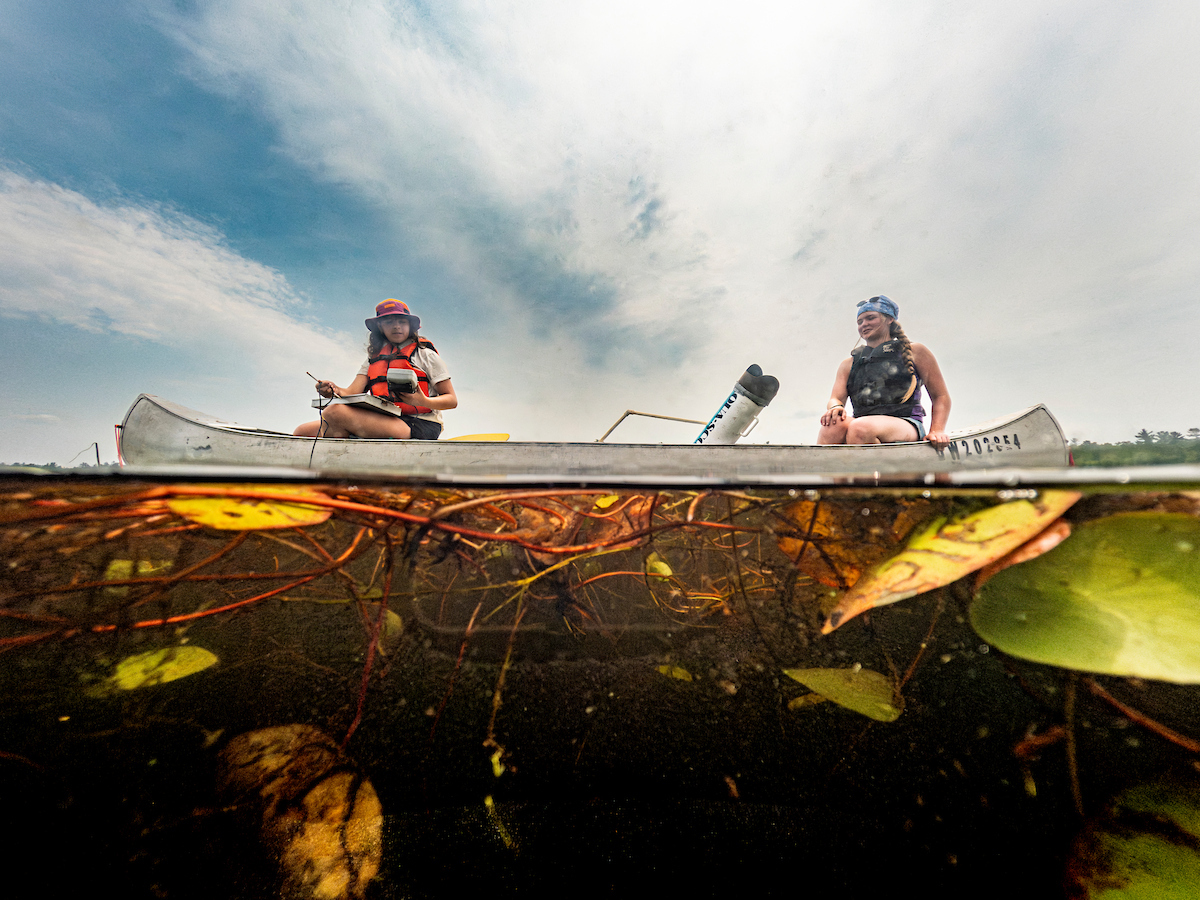75 Years of NSF Empowering Discoveries and Innovation to Transform the Future
For 75 years, the National Science Foundation (NSF) has been at the forefront of scientific discovery and innovation, transforming our understanding of the world and driving innovation that has touched every aspect of our lives and strengthened our economy and national security.
Looking to the next 75 years – NSF is setting its sights on how the U.S. can continue to lead in critical areas such as AI, quantum science, and STEM education.
NSF Funding Wisconsin Fact Sheet
Examples of NSF Funding Supporting the Wisconsin Idea
IceCube Neutrino Observatory
The largest neutrino observatory in the world, the IceCube Neutrino Observatory, consists of thousands of sensors draped through a cubic kilometer of ice at the geographic South Pole. It was built to study cosmic neutrinos – those that come from outside the solar system and are made in powerful cosmic objects like black holes and pulsars.
Its purpose is to discover the unexpected and learn more about the universe.
Construction and operation of IceCube would not be possible without support from funding partners like the National Science Foundation.
Materials Research Science and Engineering Center
The UW–Madison Materials Research Science and Engineering Center (MRSEC) has received $18 million in funding from the National Science Foundation for interdisciplinary exploration of fundamental questions in materials science.
The grant will provide six years of funding for MRSEC, which includes more than 30 affiliated faculty from nine departments across the university, as well as collaborators at other institutions and in industry. MRSEC is one of 21 such NSF-funded centers that conduct fundamental materials research, education, and outreach at the nation’s leading research institutions.
Research supported by the UW–Madison MRSEC has led to liquid crystals useful in sensing toxic gases, new types of semiconductors that could power next-generation devices, a deeper understanding of carbon nanotubes that could be important in next-generation solar, advances in the synthesis of thin film oxides that could lead to new electronic devices, new understandings of glass, which could lead to tougher versions of the material and new types of organic electronic computer displays or photovoltaic cells, and countless other advances. The MRSEC has launched 13 startup companies in areas ranging from scientific instrumentation to medical diagnostic technologies.
Major NSF-sponsored materials research center funded for $18 million
SPARC SSEC Portable Atmospheric Research Center
The University of Wisconsin–Madison Space Science and Engineering Center Portable Atmospheric Research Center (SPARC) is a mobile research laboratory designed for observing the atmosphere with ground-based remote sensors and in situ instruments. The SPARC is an 11-m (35-ft) towable trailer, that has been designed from the ground up to be a platform to support innovative research with state-of-the-art atmospheric instrumentation while also serving as a productive environment for researchers and technicians to work in while deployed in the field. The SPARC trailer is led by scientists and engineers at the SSEC and travels across the continental United States measuring weather and various atmospheric phenomena.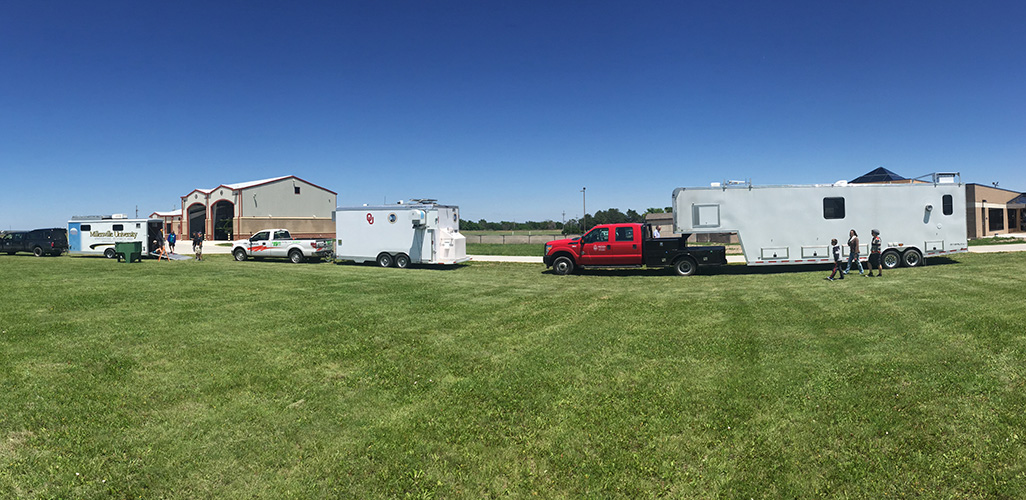
National Science Foundation establishes a partnership to advance throughput computing
The Partnership to Advance Throughput Computing (PATh) is driven by the growing need for throughput computing across the entire spectrum of research institutions and disciplines. The partnership advances computing technologies and extends adoption of these technologies by researchers and educators.
The PATh Facility, created through the Partnership to Advance Throughput Computing and NSF grant #2030508, enables researchers of an NSF-funded project to use its dedicated distributed high-throughput computing (HTC) capacity.
The PATh opens the door to longer runtimes, larger jobs, and greater customization for researchers. PATh is a partnership between the OSG Consortium and the University of Wisconsin-Madison’s Center for High Throughput Computing (CHTC). J
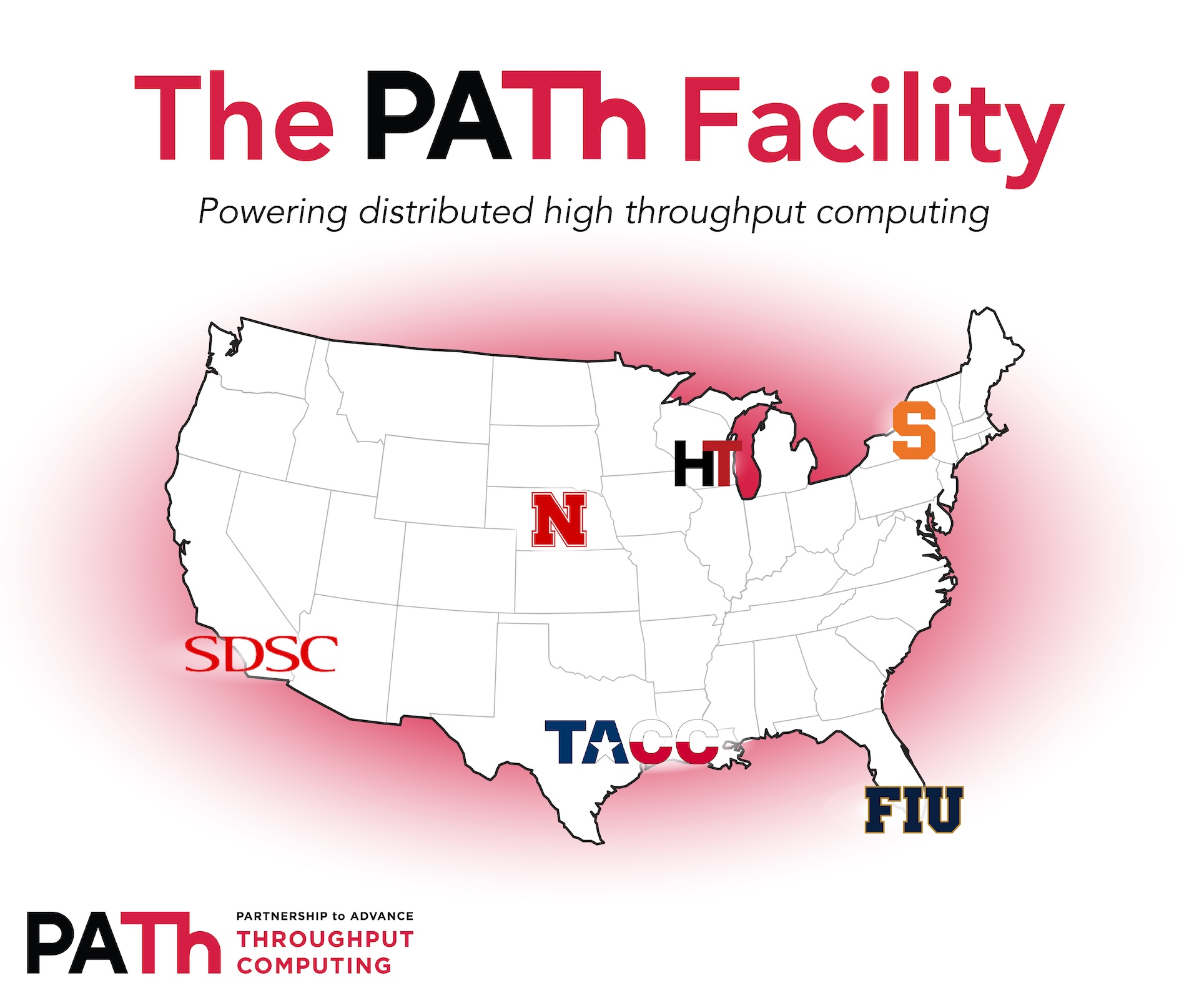
The National Science Foundation (NSF) awards credits to access the PATh Facility, making it well-integrated in the nation’s cyberinfrastructure.
North Temperate Lakes Long-Term Ecological Research
The North Temperate Lakes Long-Term Ecological Research (NTL-LTER) program conducts and facilitates long term ecological research on Wisconsin lakes. Housed on both the UW–Madison campus and at Trout Lake Station, NTL is part of the larger LTER network funded by the U.S. National Science Foundation since 1981.
The North Temperate Lakes Long-Term Ecological Research program aims to understand the ecology of lakes in relation to relevant atmospheric, geochemical, landscape and human processes. Our overarching research question is “How do biophysical setting, climate, and changing land use and cover interact to shape lake characteristics and dynamics over time (past, present, future)?”
WiSys-led partnership wins $1 million NSF grant to make Wisconsin a global leader in sustainable ag
The NSF Engines Development Award, “NSF Engines Development Award: Advancing Sustainable Agriculture in Wisconsin,” will support a partnership of 30 organizations from across the state as they lay the groundwork to develop an ambitious, effective and credible ‘regional innovation engine’ that harnesses the region’s talent and intellectual capital to make Wisconsin a global leader in sustainable agriculture.
https://www.wisys.org/news-media/wisys-led-partnership-wins-1-million-nsf-grant-to-make-wisconsin-a-global-leader-in-sustainable-ag